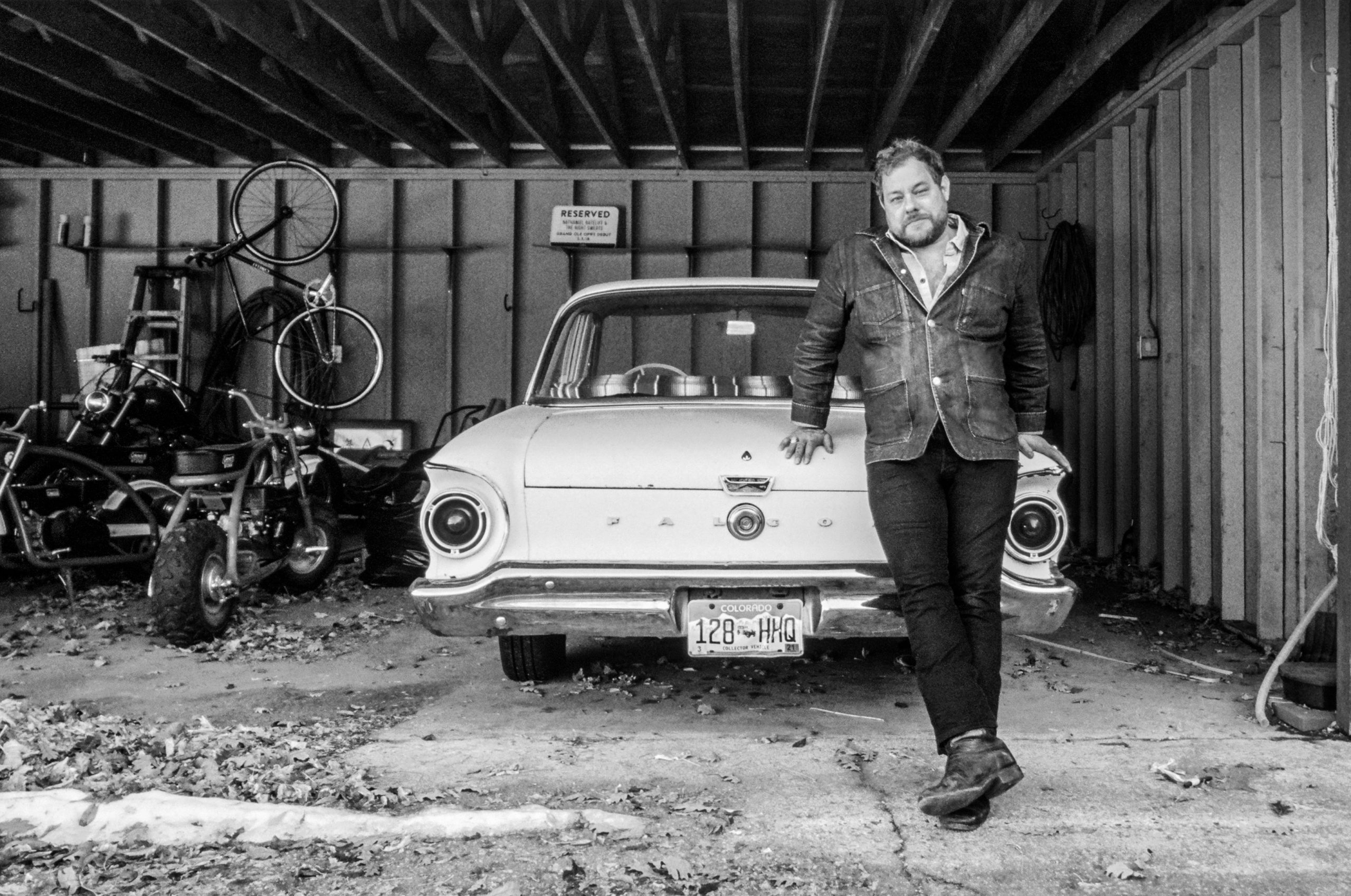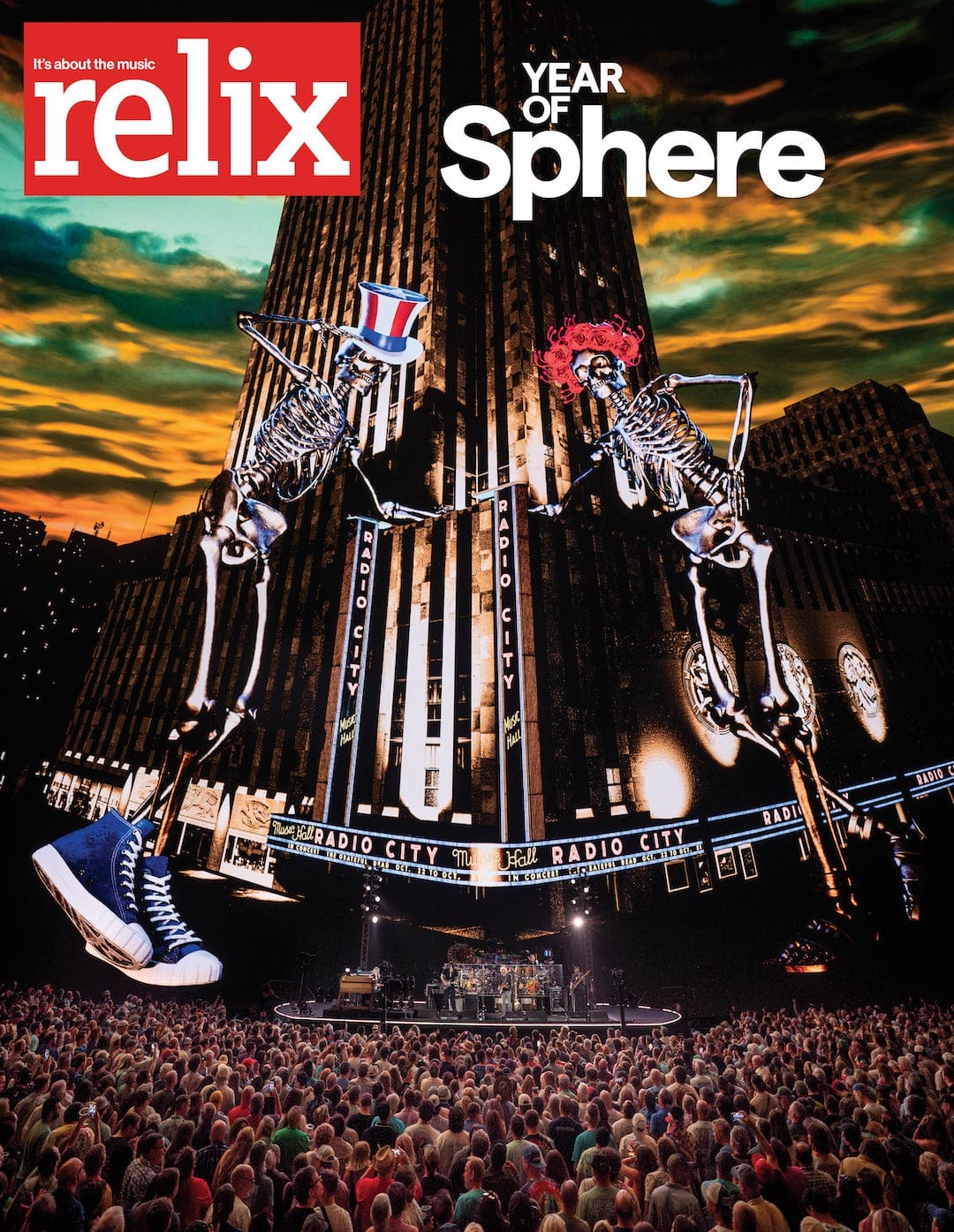Nathaniel Rateliff on Richard Swift, Harry Nilsson and ‘Castaway’ Comparisons

“When I’m making a record, there has to be something in it that’s special for me,” Nathaniel Rateliff explains. “It all starts with my emotional attachment.”
Rateliff certainly has such a connection with his new album, And It’s Still Alright, the follow-up to his previous solo release, 2013’s Falling Faster Than You Can Run. He had originally planned to record with Richard Swift, who had produced the two prior LPs from Rateliff’s band The Night Sweats. However, Swift passed away in July 2018, leaving Rateliff feeling somewhat adrift. Eventually, Rateliff opted to honor his friend and their collective vision by recording at Swift’s National Freedom studio in Cottage Grove, Ore., alongside co-producers Patrick Meese (The Night Sweats) and James Barone (Beach House).
Following the February release of And It’s Still Alright, Rateliff assembled a solo band and began gigging in support of the record, though the coronavirus pandemic ultimately scuttled most of the tour. He will presumably return to the road with the same group in the fall after The Night Sweats, who were originally planning to take a year off from touring, open a series of dates for Bob Dylan.
Richard Swift has produced an eclectic range of artists, including Marco Benevento, Guster and Foxygen. Is there a particular record that stands out to you for one reason or another?
After I first worked with Richard [on 2015’s Nathaniel Rateliff & the Night Sweats], I started to get into the four records he did with Damien Jurado, starting with Saint Bartlett (2010), because he and Damien were so close. The last three are done as a trilogy, which is an interesting way to work: Maraqopa (2012), Brothers and Sisters of the Eternal Son (2014) and Visions of Us on the Land (2016). They also recorded Other People’s Songs. [That album, which is credited to both Swift and Jurado, is comprised of covers.]
The record that we just put out was what Richard and I had intended to do, which was to make something akin to his work on Damien’s records. The Maraqopa record includes a beautiful body of songs and [showcases] an interesting production—it’s a very Swift production.
But he’s really a modern-day songwriter’s songwriter. He hasn’t had the kind of commercial success that I wish he’d have. When I listen to his songs, there is something that’s very encouraging to me as a writer, in terms of what you can do with the process.
Harry Nilsson is another artist you’ve praised who has been similarly described as a songwriter’s songwriter. What draws you to his work?
Oddly enough, one of my favorite records is actually A Little Touch of Schmilsson in the Night (1973), which isn’t even his songs—it’s a bunch of standards. At that point in his career, he had just done Nilsson Schmilsson (1971) and Son of Schmilsson (1972). He had a hit record with Nilsson Schmilsson and then, on Son of Schmilsson, he had “You’re Breaking My Heart” [with the opening lines, “You’re breakin’ my heart/ You’re tearin’ it apart/ So fuck you”]. That was his follow-up to a hit.
Then, he suddenly decided to record an album of standards. It certainly wasn’t something that was going to push his career forward, but he thought his voice would sound good on those songs. The artistic side of that is what’s interesting to me. It’s about continuing to do something that’s true to yourself—even if the audience won’t necessarily be happy about it.
Is a standards album something that appeals to you?
I always wanted to be able to perform that record, live with a symphony. [Laughs.] But as I discover more music that I like, more and more ideas occur to me. Even on this record, I feel like I used my voice differently. But it didn’t feel like I was making up a new character. It just felt natural to the songs.
Have you been approaching your older songs in a new way on your latest tour?
It had been a while since I played a lot of these songs, so I had to listen to some of them again. When I listened to my voice from back then, it made me realize that I understand myself a lot more now. When you get out of your 20s and move into your 30s and so on, you really do understand yourself much better. That’s probably helped my voice. Sometimes back in the day I felt like I was struggling to be heard and understood, which caused some confusion for some of my delivery.
At this point, I’ve played so many shows with The Night Sweats that I’ve heard a lot of myself. That type of singing resonates through my whole body. I’ve started to notice how each one of those notes feels as it comes out—whether it’s resonating through my sinus cavity or the top of my mouth. I’ve started to notice how I’m shaping the note. I’ve been thinking about where I’m breathing from and whether I’m pushing from my diaphragm or if it is too breathy. There are a lot of different aspects, and I think just doing it so much has made me understand my body more, which affects my voice.
It’s been interesting because some of the songs that I used to love—and perform all the time—seemed like too much of a stretch. I felt they were from a different character and I’m not really there anymore, so I didn’t want to incorporate those songs into the show. Mostly, though, I’ve been able to pick my favorites along with a few that I knew that people would want to hear, although I’m not playing “S.O.B.” or that kind of stuff.
One visual cue that distinguishes your recent performances from your Night Sweats gigs is that you haven’t been donning a hat onstage.
Well, going back to the basics of it, my hair had been thinning for a while, so I started wearing a hat. [Laughs.] But as far as not wearing one for this show, I just wanted it to be different from The Night Sweats, so people don’t just think, “Oh, you’re the guy with the hat who sings that ‘S.O.B.’ song.” I wanted to distance myself from that a little bit.
I’ve been mistaken for other people and it’s hilarious. There’s a trend of guys with beards and hats. I’ve been compared to Zac Brown, who happens to be a nice guy—we’ve done stuff together.
People have also said I look like Tom Hanks in that movie Castaway when he’s been on an island for four years, which I think is pretty funny.



















